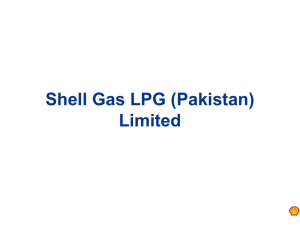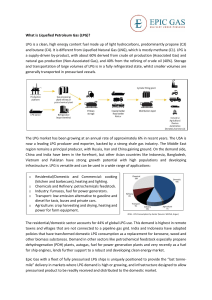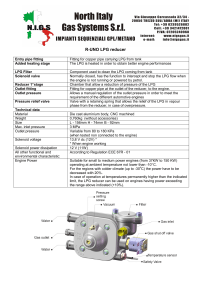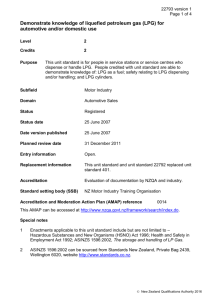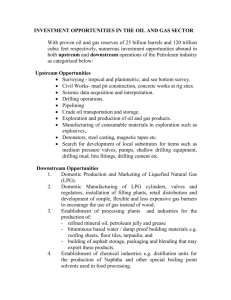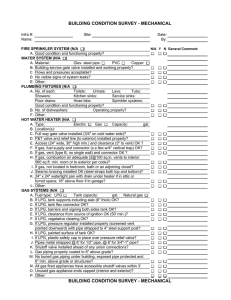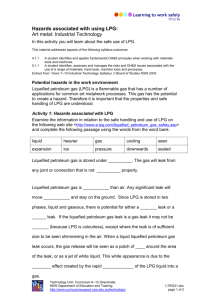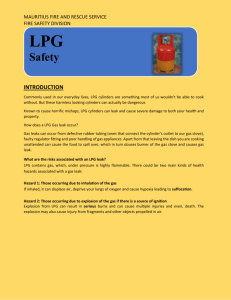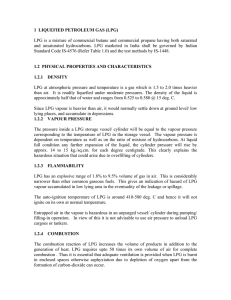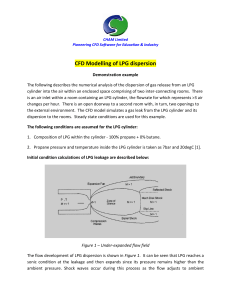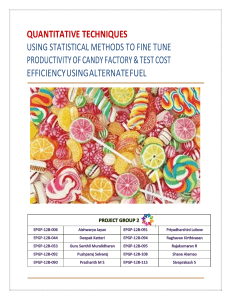ABSTRACT: Liquefied petroleum gas (LPG) is considered to be a cleaner...
advertisement
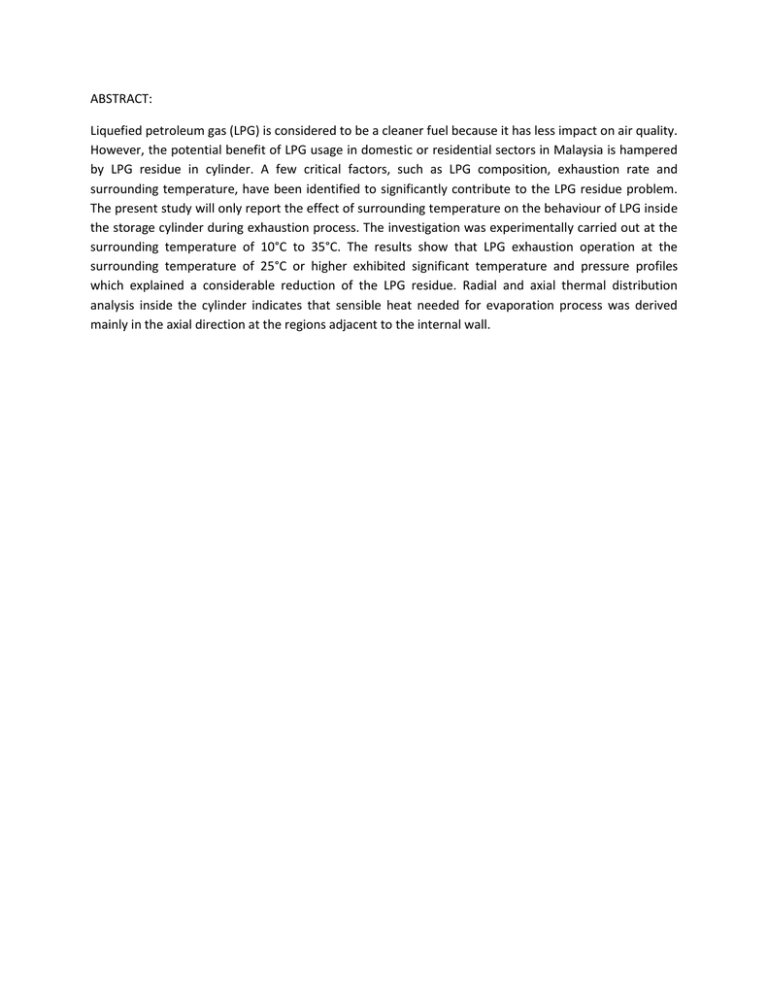
ABSTRACT: Liquefied petroleum gas (LPG) is considered to be a cleaner fuel because it has less impact on air quality. However, the potential benefit of LPG usage in domestic or residential sectors in Malaysia is hampered by LPG residue in cylinder. A few critical factors, such as LPG composition, exhaustion rate and surrounding temperature, have been identified to significantly contribute to the LPG residue problem. The present study will only report the effect of surrounding temperature on the behaviour of LPG inside the storage cylinder during exhaustion process. The investigation was experimentally carried out at the surrounding temperature of 10°C to 35°C. The results show that LPG exhaustion operation at the surrounding temperature of 25°C or higher exhibited significant temperature and pressure profiles which explained a considerable reduction of the LPG residue. Radial and axial thermal distribution analysis inside the cylinder indicates that sensible heat needed for evaporation process was derived mainly in the axial direction at the regions adjacent to the internal wall.
